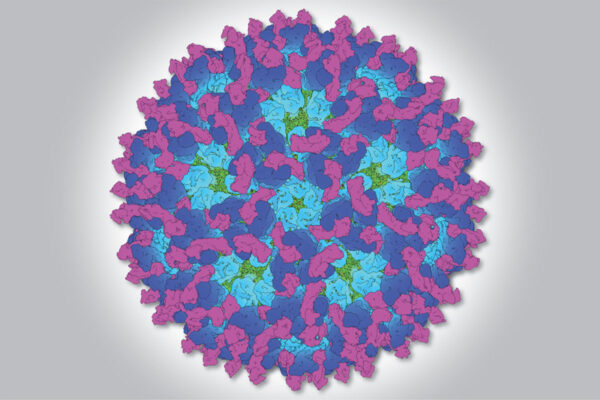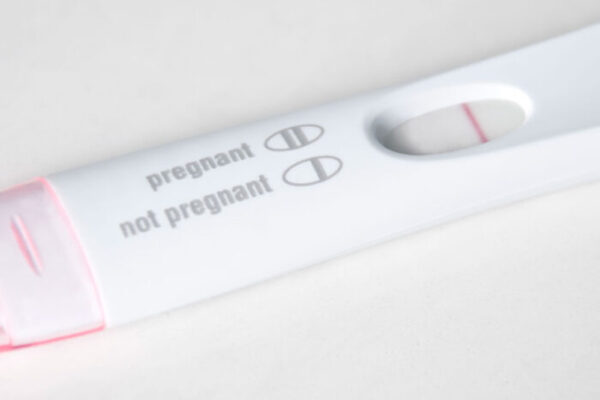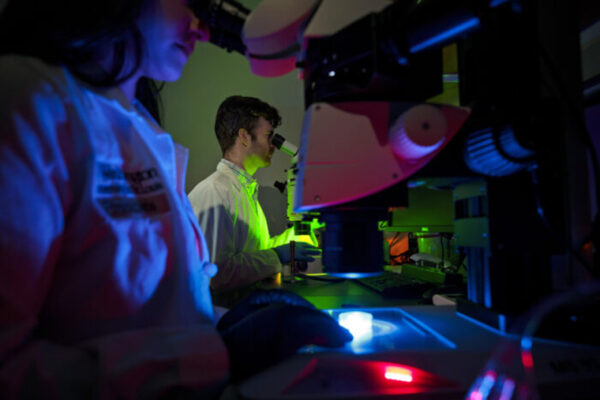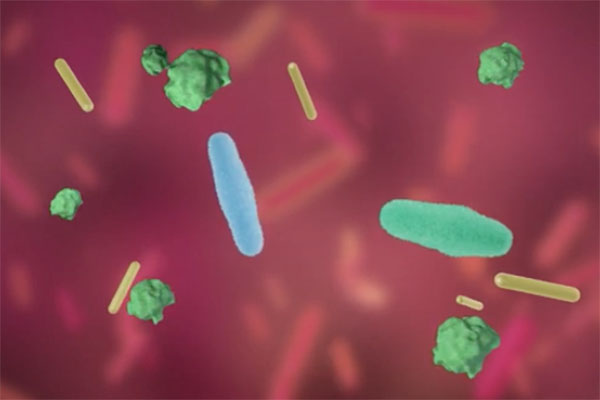Once thought to be asexual, single-celled parasites caught in the act
The single-celled parasite Leishmania can reproduce sexually, according to a study from the School of Medicine and the National Institutes of Health (NIH). The finding could pave the way towards finding genes that help the parasite cause disease.
What a snapshot image of chikungunya is revealing
School of Medicine researchers have snapped high-resolution pictures of the chikungunya virus latched onto a protein found on the surface of cells in the joints. The findings could accelerate efforts to find new ways to prevent or treat viral arthritis.
‘Lessons learned’ from engaging in Africa
Washington University in St. Louis is committed to engaging with its global partners to help address our biggest challenges together. This spirit of collaboration was evident at the inaugural meeting of the Africa initiative, held April 23 on the Danforth Campus.
Flaw in many home pregnancy tests can return false negative results
Pregnancy tests can sometimes give a false negative result to women several weeks into their pregnancies, according to research by Ann Gronowski, professor of pathology and immunology at the School of Medicine. Her findings led the FDA to change its standards for evaluating new pregnancy tests, but old tests with the false-negative problem are still on the market.
Up to $24 million will help to eliminate two tropical diseases
An international team led by Gary Weil, MD, of the School of Medicine is poised to help eliminate two disabling tropical diseases as public health problems. A large grant from the Bill & Melinda Gates Foundation will fund clinical trials and other studies aimed at preventing new cases of elephantiasis and river blindness.
Centene and Washington University collaborate to advance personalized medicine research
Centene Corp. and the School of Medicine announced a partnership April 8 to transform and accelerate research into treatments for Alzheimer’s disease, breast cancer, diabetes and obesity. As part of the partnership, Centene will fund up to $100 million over 10 years in research at the university.
WashU Expert: What happens if ACA is eliminated?
The Trump administration said this week that the whole Affordable Care Act should be struck down in the courts. Doing so would have profound implications on health care and the economy, says an expert on health economics at Washington University in St. Louis.
Cannabis during pregnancy bumps psychosis risk in offspring
Pregnant women who use cannabis may slightly increase the risk their unborn child will develop psychosis later in life, suggests new research from Washington University in St. Louis.
Probiotic bacteria evolve inside mice’s GI tracts
Probiotics – living bacteria taken to promote digestive health – evolve once inside the body and have the potential to become less effective and sometimes even harmful, according to a new study from the School of Medicine. The findings suggest that developers of probiotic-based therapeutics must consider how the probiotics might change after administration.
Home-based lifestyle intervention minimizes maternal weight gain
Weight gain during pregnancy and postpartum are important causes of long-term weight gain and the development of obesity-related diseases among women. A new study from Washington University in St. Louis finds providing a home-based lifestyle intervention effectively minimizes excess maternal weight gain during pregnancy and through 12-months postpartum in underserved African American women with obesity.
Older Stories









